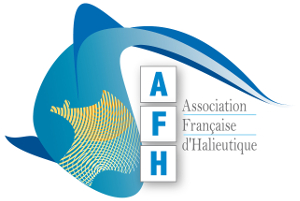We seek candidates for a Postdoctoral Researcher who will join investigators at Hopkins Marine Station (HMS, http://hopkinsmarinestation.stanford.edu/), Natural Capital Project (NatCap, http://www.naturalcapitalproject.org/), and Center on Food Security and the Environment (FSE, http://fse.fsi.stanford.edu/) in the project “Using large marine protected areas to recover highly productive marine ecosystems and the services they provide: the case of the Adriatic Sea”, funded by Stanford’s Woods Institute for the Environment (https://woods.stanford.edu/research/environmental-venture-projects).
The Postdoc will be based at Hopkins Marine Station in Fiorenza Micheli’s laboratory but would work collaboratively and interact routinely with the other investigators in the project (Drs. Rosamond Naylor, Mary Ruckelshaus, and Anne Guerry) by participating in biweekly meetings on Stanford’s main campus and through quarterly visits with the Marine NatCap group in Seattle, WA. The Postdoc will work on creating innovative conceptual approaches and analyses in support of spatial management of marine ecosystems. In particularly, she/he will design and conduct analyses and models aimed at quantifying the impacts of bottom trawling on marine ecosystem services, and generate possible scenarios of recovery of ecosystem services under different configurations of no-trawl zones in the Adriatic Sea, within the Mediterranean. We seek a creative individual with expertise in a relevant ecological or oceanographic discipline (e.g., marine ecology, biophysical oceanography, spatial analysis and modeling) and the ability to effectively work in interdisciplinary teams on cross-cutting issues. The work of the Postdoctoral Researcher will require proficiency in R and Python, experience with GIS, data visualization, programming, data management/protocol, version control, coding, metadata, ability to manage servers and relational databases. Given the focus and goals of the project and of the groups involved, we seek a person with experience and/or interest in both advancing scientific frontiers and addressing real-world challenges of sustainability in coastal and ocean environments. The position is for up to two years, starting as soon as possible. Salary will depend on the level of experience.
Qualifications:
The successful candidate will have a PhD in a related field and preferably 2-4 years’ experience in advanced technical work, including demonstrated ability to analyze systems and solve complex technical problems using spatial analytic methods and experience in environmental data analysis/interpretation using statistical methods and/or modeling. Preference will be given to those with some proficiency in marine science methods and technologies, issues related to fisheries, as well as demonstrated scientific productivity through peer-review publications. Candidates must possess strong teamwork skills and ability to work effectively with staff at many levels as a colleague or supervisor, as well as work successfully within an interdisciplinary group of researchers. The successful candidate will be a self-starter, with the ability to work independently and as a member of a team. Because of the international nature of the work, an ability to read and speak Italian and/or Croatian would be an additional asset.
About the Project:
This project examines the potential outcomes of large-scale trawling bans for marine ecosystem function and services through integrated ecological and economic models. Specifically, we aim to quantify the effects of a large marine protected area (LMPA) on a suite of ecosystem services provided by an intensely-exploited offshore area in the Adriatic Sea, within the Mediterranean basin, and to use our case-study to advance the frontier of understanding of the benefits of LMPAs on heavily-used continental shelves globally. Fishing practices that use gear that is dragged on the seafloor, such as bottom trawling, destroy and degrade marine habitats on continental shelves, the most productive areas of the global ocean. Despite clear evidence that trawling negatively impacts marine habitats, assessments of the outcomes of restricting trawling on ecosystems and ecosystem services are scarce, thereby impeding progress towards solutions. The ongoing process of identification and establishment of a large no-trawl zone in the Mediterranean Sea provides a unique opportunity to contribute new knowledge and guidance in this case study, and novel models and information for broader application to other regions around the globe.
Stanford is an equal opportunity employer and all qualified applicants will receive
consideration without regard to race, color, religion, sex, sexual orientation, gender identity, national origin, disability, veteran status, or any other characteristic protected by law.
Candidates should send a cover letter, research statement, Curriculum Vitae, and the names and contacts of three references to Fiorenza Micheli at micheli@stanford.eduby November 1, 2015.
